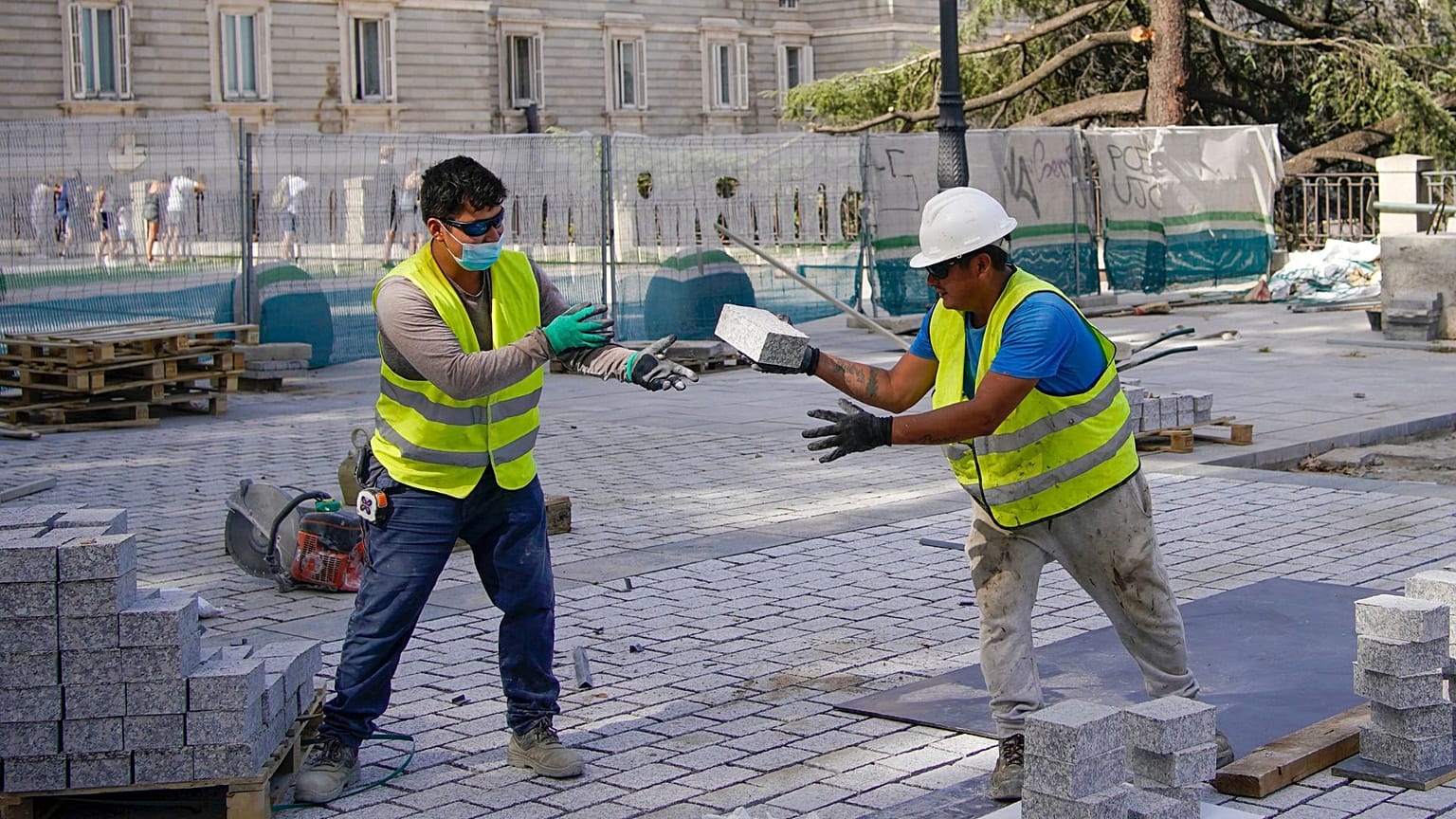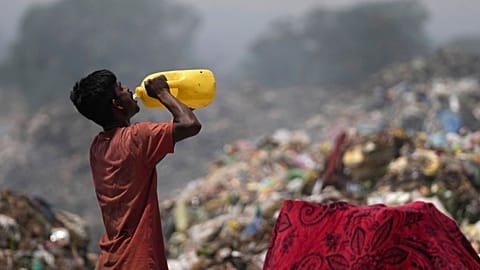The government has allocated €2 billion to ease the impact of extreme heat and drought on farmers and water supplies.
Spain plans to ban outdoor work during periods of extreme heat.
 ADVERTISEMENT
ADVERTISEMENT
 ADVERTISEMENT
ADVERTISEMENT
The measure will be enforced when the state weather agency AEMET issues red or orange alerts.
These heat alerts are frequently issued when temperatures hit the high 30s or over 40C, posing a risk for citizens outdoors or for the environment.
Last year was Spain’s hottest since record-keeping started in 1961, and last month was the hottest and driest April on record.
Much of the country is experiencing drought, and water reserves are below 50 per cent.
Spain has approved a €2 billion drought emergency package
The measure was agreed by the government on Thursday (11 May) during a special Cabinet meeting on the drought emergency.
A package of measures worth more than €2 billion was approved to protect water resources and agriculture.
This will be used to build new infrastructure to tackle water shortages, such as seawater desalination plants and systems for reusing wastewater. It will also be spent on support for agriculture, including livestock and milk producers.
It wasn't immediately clear which professions will be covered by the outdoor work ban, though it has been confirmed that working hours in the agricultural and construction sectors will need to be adapted during heatwaves.
Some parts of Spain have already enforced heatwave working restrictions
In places accustomed to high temperatures, such as Spain’s southern Andalusia region, construction workers already work only morning hours during the summer.
A temporary street cleaner died of a heat stroke while working in Madrid last year. The 60 year old's body temperature was close to 42C.
The death prompted a change in working conditions. Unions and contractors providing municipal services signed an agreement suspending street sweeping on days where average temperatures climb above 39C.
Over certain temperatures, the companies also agreed to also provide sun cream and caps to the 7,000 workers they employ and use only air-conditioned vehicles.

















